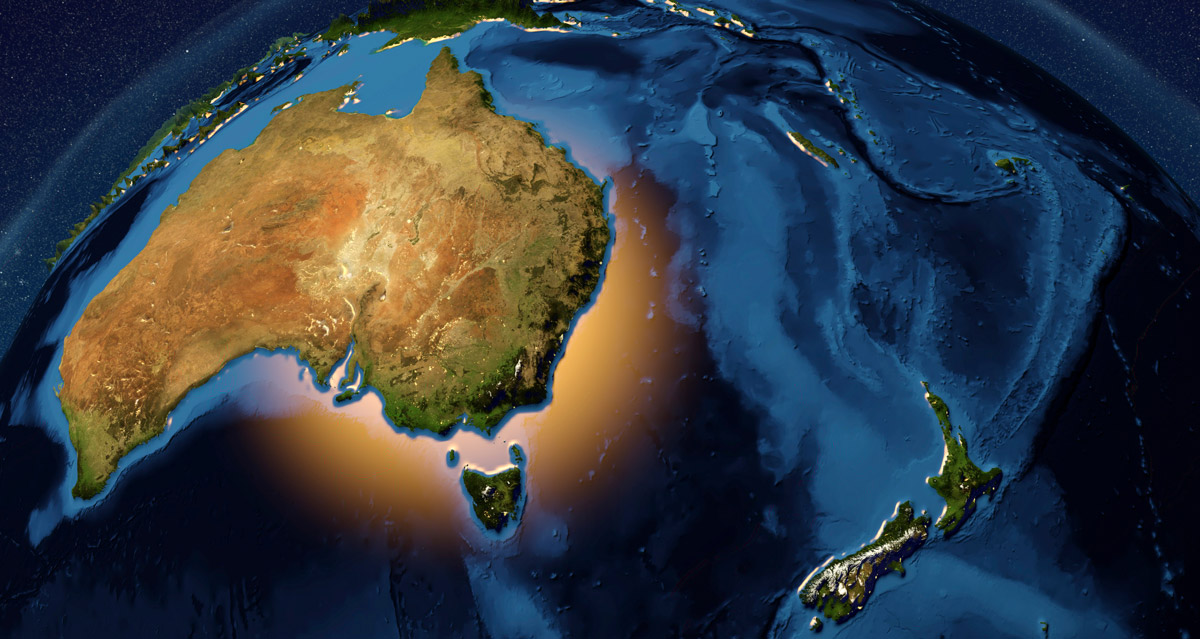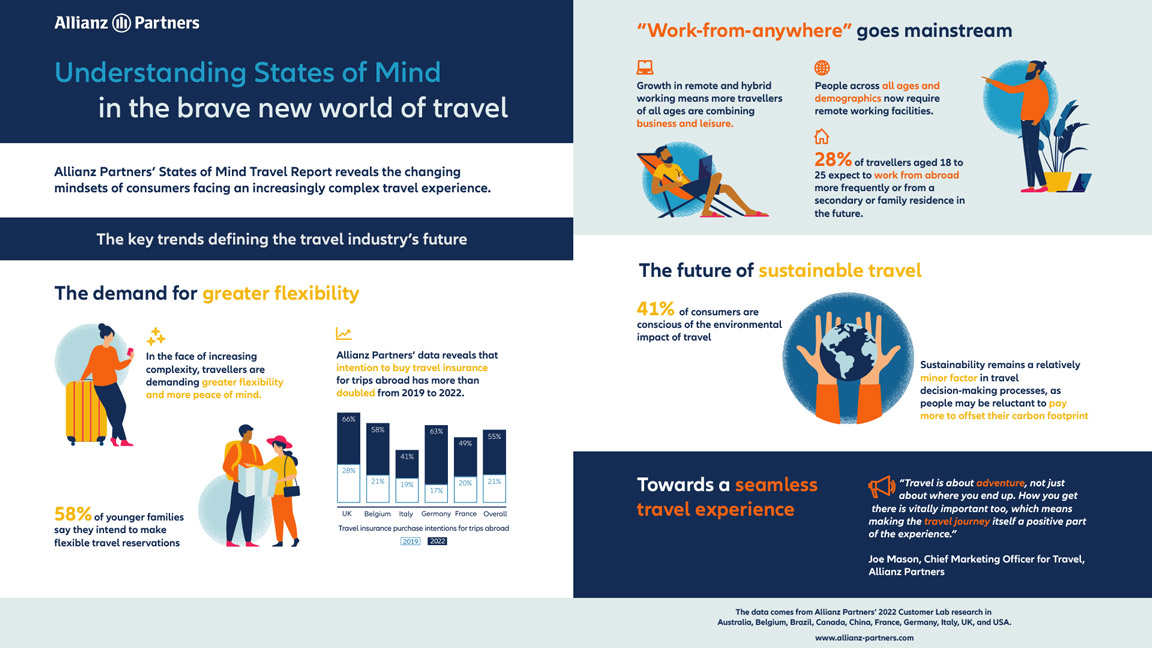The travel industry has never experienced anything like the last three years. Coming out of the COVID-19 pandemic, travellers are now facing new uncertainties of geopolitical instability, rising energy costs and soaring inflation. In this uncertain context, Allianz Partners has unveiled a new report looking at the needs, wants and behaviors of travellers and the main trends that will impact the future of travel.
The report draws on data from Allianz Partners’ own Customer Lab 2022 Research and the insights of two leading travel industry experts: Joe Mason, Chief Marketing Officer for Travel at Allianz Partners, and Luís Araújo, President of the European Travel Commission and President of Turismo de Portugal. The three main trends highlighted in the report are:
Trend 1: The demand for greater flexibility
Travellers’ demand for more flexibility is defining post-pandemic travel as customers seek to manage a wider range of potential issues.
Trend 2: The rise of ‘Work-from-anywhere’ and new ways of working
The rise of remote working was hastened by the COVID-19 pandemic, but there are already indications that the trend is here to stay. People across all ages and demographics are now requiring remote working facilities.
Trend 3: The future of sustainable travel
While consumers are becoming more conscious of the impact international travel can have on the environment, they have yet to consider their carbon footprint as a major factor in their decision-making processes regarding travel.




